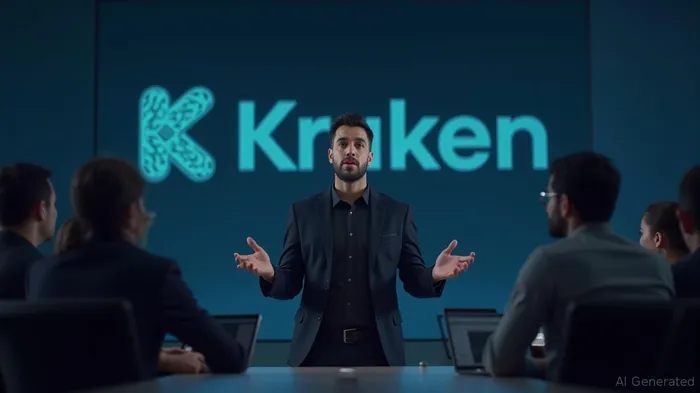Aave Approved 99.8% For Kraken’s Ink Blockchain Deployment
Aave’s community has overwhelmingly approved a groundbreaking proposal to license a centralized version of its lending protocol for deployment on Kraken’s Ink blockchain, signaling a strategic expansion into institutional DeFi markets. This move represents a significant shift as AaveAAVE-- seeks to blend decentralized finance innovation with centralized compliance frameworks, potentially unlocking new revenue streams and broader adoption. The proposal garnered a remarkable 99.8% approval in the preliminary offchain vote, underscoring strong community support for this initiative.
Aave’s licensing of its protocol for Kraken’s Ink blockchain aims to boost institutional lending and revenue. The recent approval of the Aave Request for Comment (ARFC) to license a centralized version of Aave v3 on Kraken’s Ink blockchain marks a pivotal development in the DeFi landscape. This initiative is designed to leverage Kraken’s compliant layer-2 infrastructure to facilitate institutional-grade lending solutions. By enabling a whitelabel deployment, Aave positions itself to capture a growing market segment that demands regulatory adherence alongside DeFi innovation.
The ARFC highlights that this licensing approach will allow Aave to “expand its technology adoption while creating new revenue streams,” reflecting a pragmatic balance between decentralization and centralized oversight. The Ink Foundation’s commitment to incentivize early liquidity with over $250 million in supply through liquidity mining programs further underscores the commercial viability and growth potential of this partnership.
The governance framework proposed in the ARFC introduces a revenue-sharing model where the Aave DAO will receive a minimum Reserve Factor equivalent of 5% based on borrow volumes across all pools on the Ink deployment. This model not only aligns incentives between the DAO and the Ink Foundation but also establishes a sustainable revenue flow that supports ongoing protocol development and community initiatives. Importantly, the ARFC serves as a preliminary step before a full onchain Aave Improvement Proposal (AIP) vote, ensuring that the community retains ultimate control over the protocol’s strategic direction. This layered governance approach exemplifies Aave’s commitment to transparency and decentralized decision-making even as it explores centralized licensing.
Despite a recent dip in total value locked (TVL) from $40.3 billion to approximately $33.5 billion, Aave remains a dominant player in the DeFi lending sector. The protocol currently ranks second behind Lido, a liquid staking platform with $34.3 billion in assets. This competitive environment highlights the importance of strategic partnerships and innovation to maintain market leadership. By integrating with Kraken’s Ink blockchain, Aave aims to tap into institutional demand for compliant, scalable DeFi solutions. This move aligns with broader trends where traditional finance (TradFi) entities are increasingly exploring onchain asset tokenization and decentralized lending to overcome legacy banking inefficiencies.
The collaboration between Aave and Kraken’s Ink blockchain could serve as a blueprint for future DeFi projects seeking to bridge decentralized protocols with regulated financial ecosystems. The Ink blockchain’s focus on compliance and institutional readiness complements Aave’s robust lending infrastructure, potentially accelerating the adoption of DeFi products by institutional investors. Moreover, the substantial liquidity incentives committed by the Ink Foundation are likely to drive early user engagement and liquidity depth, critical factors for the success of any lending protocol. This initiative may also encourage other DeFi projects to explore similar licensing and partnership models, fostering a more interconnected and compliant DeFi ecosystem.
The overwhelming community approval of Aave’s licensing proposal for Kraken’s Ink blockchain represents a strategic evolution in DeFi governance and market positioning. By embracing a centralized deployment model within a compliant framework, Aave is poised to expand its institutional footprint while maintaining decentralized governance principles. This initiative not only opens new revenue avenues but also exemplifies the adaptive strategies necessary for DeFi protocols to thrive amid increasing regulatory scrutiny and market competition.

Quickly understand the history and background of various well-known coins
Latest Articles
Stay ahead of the market.
Get curated U.S. market news, insights and key dates delivered to your inbox.



Comments
No comments yet